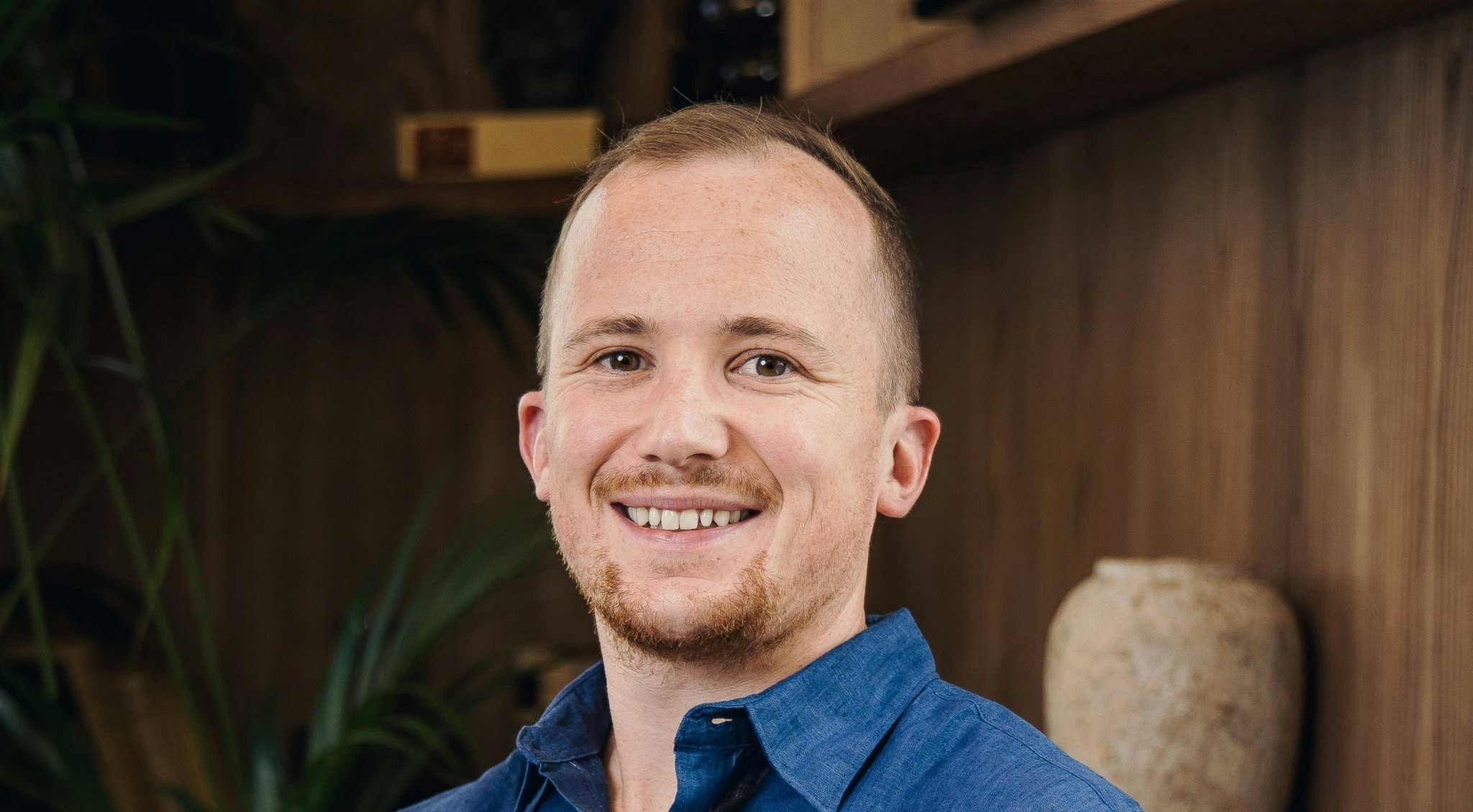Climate tech funding has cooled in 2025: the first half of the year saw €4bn invested into European companies, compared to €6.7bn in the same period last year.
But, while some investors are scaling back their focus on climate tech, not everyone is.
We asked seven climate investors who are still bullish on the sector what they’d like to see land in their inbox, from tools to make AI greener to personal cooling tools.

Clara Ricard, principal at Transition VC
Transition VC backs climate-focused companies at seed and Series A stage.
Climate adaptation
“We’re past 1.5°C. Startups tackling extreme weather like drought or fires are just the beginning. I’m especially excited about less obvious solutions — think biosecurity (preventing the spread of harmful diseases as climates change), personal cooling for outdoor workers — and tools for responding to the risks rather than monitoring them.”
Remote access with fleets of small unmanned vehicles
“Drones, sensors, robotics and batteries are better and cheaper than ever. Add Starlink and edge computing to the mix, and we can now unlock many remote applications in forests, fields and oceans.”
Fintech for farmers
“Building venture-scale companies in agriculture can be difficult, due to the low willingness to pay and complicated go-to-market. One way to boost revenue per acre is through financial services — insurance, payments, credit — which are core to every farming operation and could be combined with farm management software.”
Tooling for engineering, manufacturing and industrials
“Decarbonisation requires better hardware tooling — for new entrants to scale faster, and for incumbents to adapt with less friction. We’ve been excited about solutions that involve integrating siloed data or extracting new data. AI and robotics are tailwinds of course, and it’s a crowded category but the big unlock lies in delivering clear and fast ROI.”

Sarah Jones, principal at Zero Carbon Capital
London-based Zero Carbon Capital makes pre-seed and seed investments.
Decarbonising meat and dairy with methane inhibitors
“Livestock emissions account for 5.8% of our global annual greenhouse gas emissions, most of this being methane released from enteric fermentation in the gut of ruminant livestock (cattle and sheep).
Although in most countries regulation is not yet in place to incentivise reducing these livestock emissions, dairy companies are actively looking for solutions. They want low carbon branded products to satisfy consumers and they want to be ahead of the curve when regulation is introduced.
Startups in this space are working on seaweed extracts, probiotics, chemical inhibitors and vaccines to reduce enteric methane emissions. We’d love to see companies working on ultra low cost methane inhibitors, preferably with milk (and/or meat) yield benefits so that it is a no-brainer for farmers.”
Max Werny, venture associate at Zero Carbon Capital
Decarbonising steel production
“Steel production is a major contributor to global greenhouse gas emissions, accounting for roughly 7-9% of the world’s total. The process of making steel, particularly with traditional methods like blast furnaces, releases significant amounts of carbon dioxide.
Innovative technologies, such as H2-DRI processes and novel low-temperature electrolysers, could reduce the carbon intensity of the industry in the medium to long term. We’d love to see novel technologies that can accelerate these approaches, and we’re also looking for pragmatic retrofit solutions that are imminently scalable — top gas recycling (e.g. using technologies to dissociate CO2), thermal energy generation and storage systems, as well as highly cost-effective carbon capture solutions.”
Jon Pollock, CEO of Elbow Beach
Elbow Beach backs early-stage companies focused on making industries greener.
Energy efficient compute
“One area we’re particularly focused on is high-performance, energy-efficient compute. Global demand for compute power is set to grow exponentially, driven by AI, advanced manufacturing and automation. The energy footprint of data infrastructure is becoming a massive and growing problem. Businesses are under pressure to process more data, faster and more intelligently than ever before.
We’re closely tracking technologies such as photonic computing, low-power architectures, compute localisation and edge AI and advanced cooling systems. These innovations are more cost-efficient and often outperform incumbent systems in speed, reliability and scalability, as well as being greener.
Cheaper, efficient and low-carbon compute is a foundational enabler of productivity and competitiveness. It underpins the UK’s industrial strategy on advanced manufacturing and will be critical to ensuring that industries can meet the compute demands of the future, without sacrificing performance or sustainability.”
Novel materials
“Another important area we’re exploring is the use of novel, lower-cost materials that can reduce production expenses while improving performance. These materials help ease pressure from stressed global supply chains and enable more affordable, energy-efficient solutions which helps to unlock new opportunities for scalable growth.”
Reid Carroll, investor at SFV Ventures
SFV invests globally from seed stage to Series B into companies working across cities, energy, and infrastructure.
Resilience tools for commercial buildings
“Insurers, lenders and shareholders have woken up to the importance of commercial building resilience in the face of more-frequent extreme weather events. We’re on the lookout for tools that can go further than simply identifying risk. Think: quantifying asset-specific financial losses and downtime and identifying ideal mitigation strategies.”
Automating engineering work for buildings
“Mechanical, electrical and plumbing engineering (MEP) is a key part of building and renovating commercial buildings — it’s a $50bn industry today and growing over 10% each year. It’s also full of inefficient workflows, and we’re on the lookout for solutions that can help engineers work faster and make fewer mistakes.
In particular, we’d love to see more solutions for the construction administration phase of MEP design. Over 40% of an engineer’s time on commercial projects goes to manually reviewing the construction plans put forward by a contractor and comparing them to the design specifications, and much of that effort could (should!) be automated.”
Burhan Pisavadi, investor at PT1 Ventures
PT1 Ventures backs pre-seed and seed stage companies working on real estate and energy infrastructure.
Insurance for climate adaptation
“We’re now in a post-1.5°C world, and so the long tail of climate events is getting fatter. We’re seeing this with the increasing number of wildfires, floods and subsidence events globally. We need better ways to make insurance work for this. In response to more natural disasters, premiums are going up and some insurers are pulling out of high-risk areas. This isn’t sustainable or scalable.
We need innovation here: whether better software for the insurers to underwrite more appropriately, or new policies which flex based on introducing climate adaptation measures, or a new model of insurance entirely.”
Low-carbon heating
“Heat pumps are proven to work in most residential cases (despite what the Daily Mail and The Telegraph say): look at Scandinavia. What we actually need now are heat pumps or innovations in heating technology that work for heavier industries which require hotter temperatures, which are harder to abate. Here, we’re still stuck burning hydrocarbons for heat. This could be hardware innovation (whether it’s system-level or component-level) or business model/financial innovation (providing heat as a service).”

Will Dufton, investor at Giant Ventures
Giant Ventures is a multi-stage fund backing companies across climate, health and economic mobility.
A sustainable space economy
“The space economy is a truly frontier market showing signs of rapid maturation. The number of objects launched into orbit has increased more than five times in the last five years. SpaceX’s Starship will open up the skies just as the Boeing 747 made long-haul air travel accessible.
The explosive growth of the space sector, however, will do more climatic harm before it can do good. In the Giant growth team, we are looking at more sustainable launch platforms. The launch market is opening up today, in any case, due to increased focus on sovereign launch capabilities in the advent of widespread geopolitical volatility with the US.
Market tailwinds create the conditions for large companies to also be built at the “application layer” of space. We are interested in applications that expand access to energy or create industrial efficiencies, such as systems that harness the abundant solar energy available in geosynchronous orbit or that enable novel materials manufacturing.”
Air conditioning
“It’s that time of the year when every British person complains about the weather being too hot and the fact that only 5% of our housing stock has air conditioning. With summers getting hotter and longer, this is fast becoming no laughing matter.
It’s a challenging market to invest in for VCs. It is a capital intensive, deployment-heavy sector that has not seen truly game-changing product innovation for decades. We would love to find a venture-backable opportunity in this area.”
Industry-ready robots
“The factory floor can be an unforgiving place. Large industrial facilities tell us: “We want automation, but we cannot afford downtime, and marginal improvements aren’t worth our effort.”
Lucky for them, robotic arms and drones have been around a long time by now, as have edge computing, computer vision hardware and machine learning. Rapidly declining cost curves across all these technologies have enabled a new crop of automation products that meet these customers’ demands.
These products might not be as sexy as humanoids, but they are easy to deploy, deliver high returns on investment and have short payback periods. They can also unlock significant time, energy and resource efficiencies, for which the positive climate impact is underestimated. We are looking into this crop of companies and the new kinds of models that come with them, like robots-as-a-service.”

Estella Langheim, investor at Lightrock
Lightrock invests globally across both private and public markets.
Grid technologies
“The electricity grid is the backbone of Europe’s energy transition. We are eager to connect with those developing solutions to make the grid more effective and resilient, whether through expanding grid capacity or deploying advanced grid optimisation technologies.”
Low-carbon materials
“The construction industry, but also chemicals and broader materials sectors are major contributors to greenhouse gas emissions. We are looking for innovators developing sustainable materials, including next-generation cement and chemicals, as well as enabling technologies to these sectors, which are commercially viable and at a scale-up inflection point.”
Decarbonization technologies for hard-to-abate industries
“We are also focused on technologies and solutions that can help decarbonise heavy industries and industrial processes. This includes, for example, low-carbon heat solutions such as thermal energy storage and other innovations that can deliver measurable emissions reductions in sectors that are traditionally more difficult to decarbonise.”
Read the orginal article: https://sifted.eu/articles/climate-tech-vcs-pitches/


